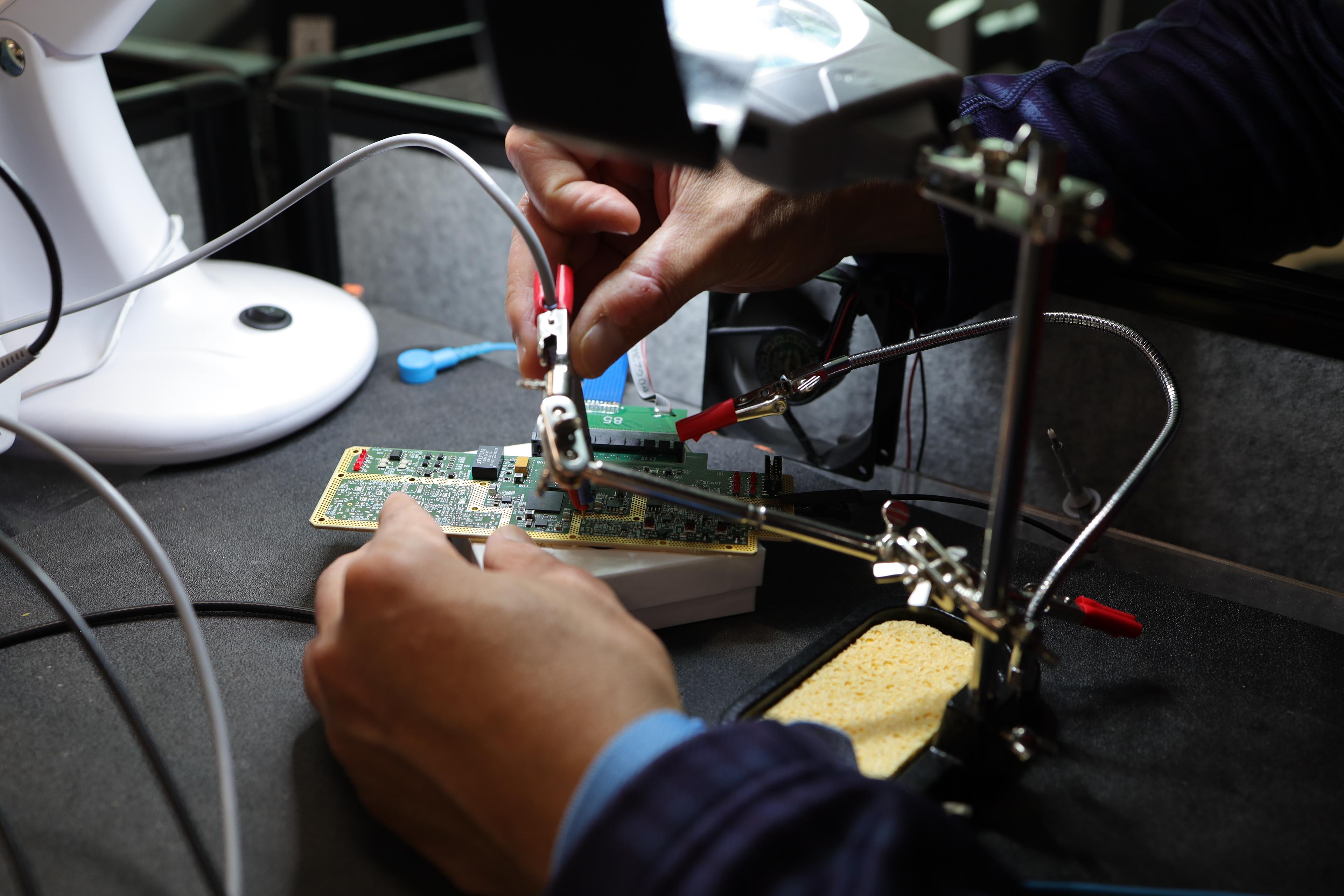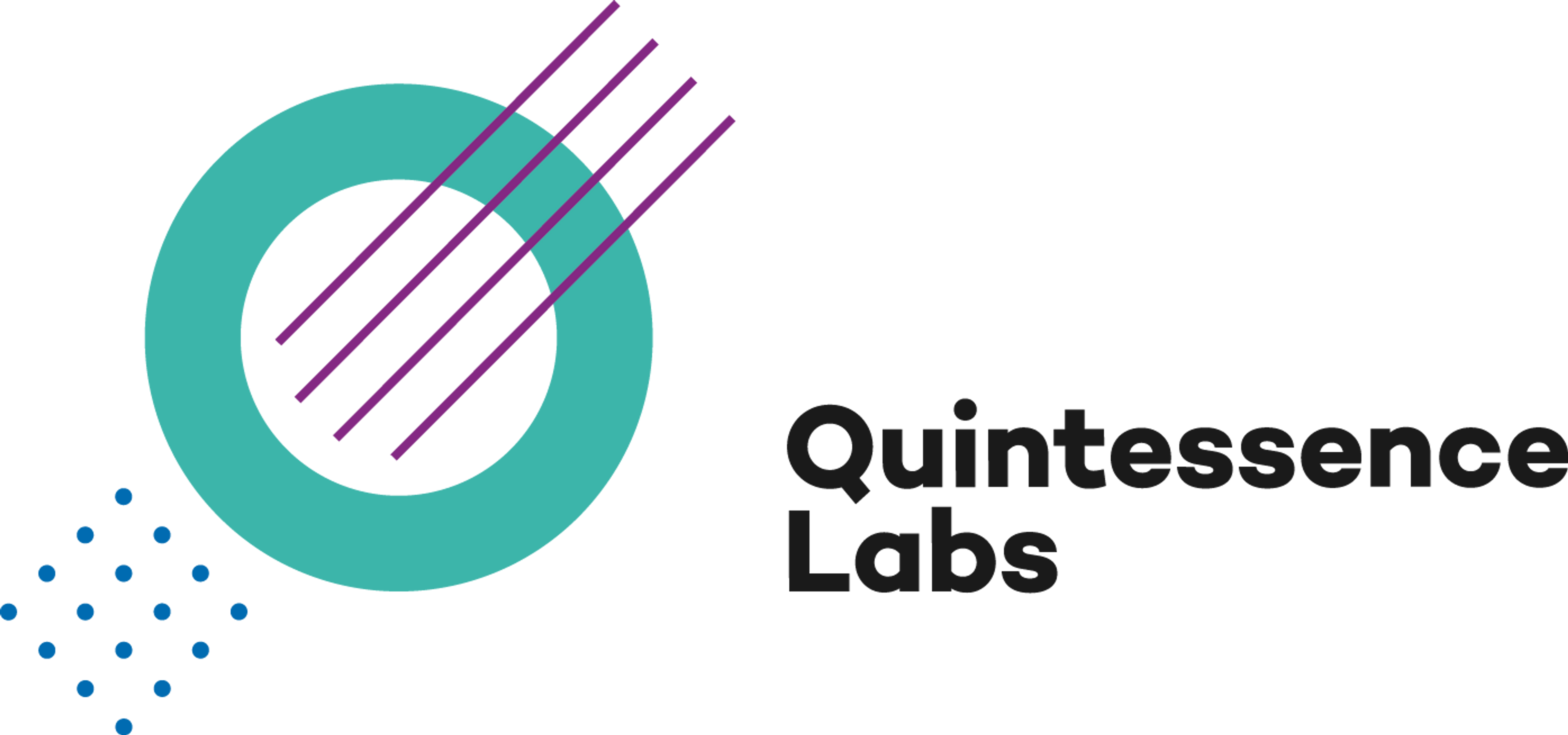Abstract
Technological disruption and uncertainty have become the truism of our times. The operating principles, and assumptions of the 1990s and early 2000s no longer apply to this new world that is defined by strategic competition, structural shifts in the international system, and industrial revolution 4.0. With increased computing power, our challenges have also magnified. Be it increased cyber security threats or our ability to secure against data breaches. The complexity, scale and sophistication of cyberattacks is constantly challenging our capacity to anticipate, prepare and respond.
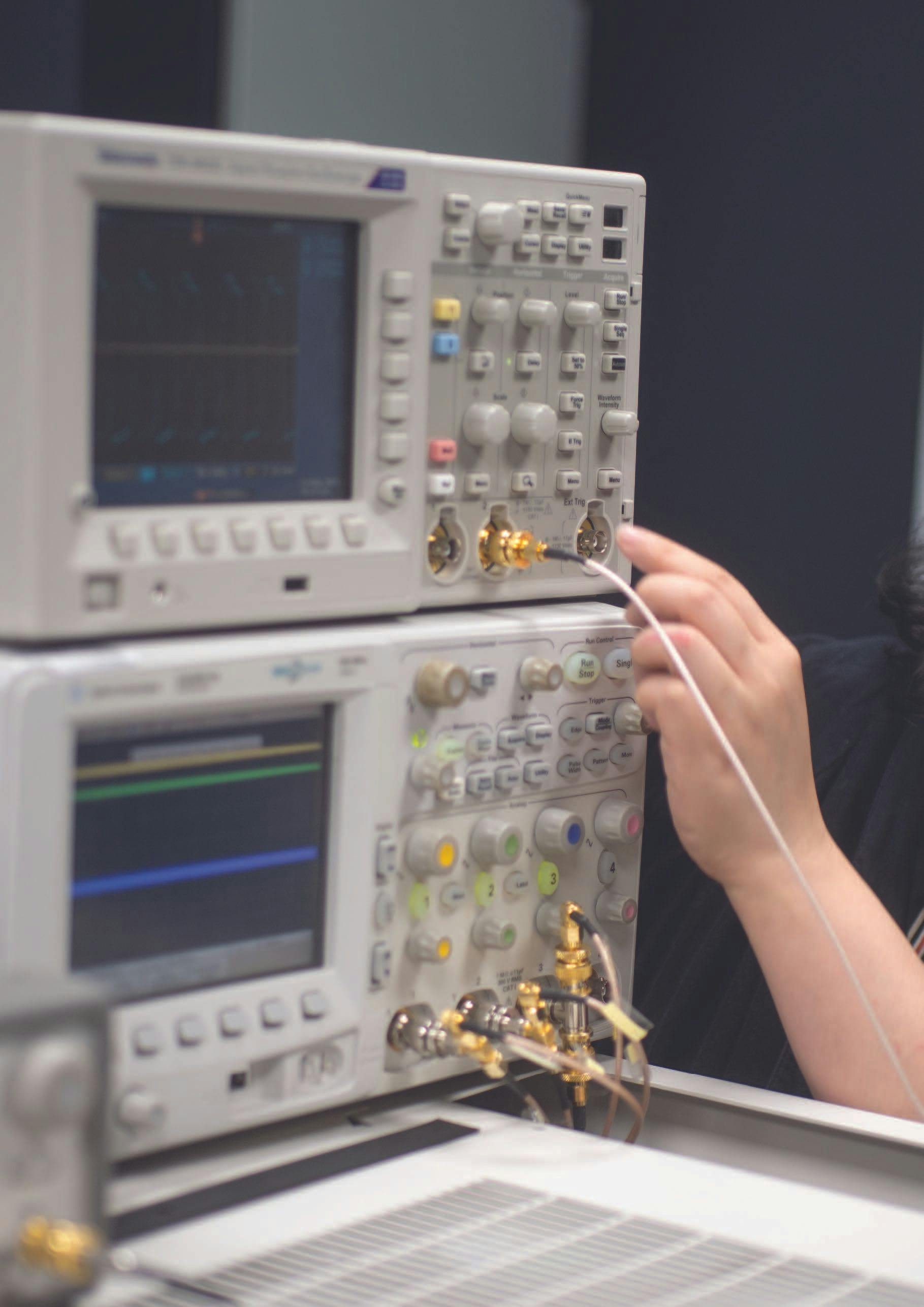
It is in this context in 2008, Australia’s first quantum technology company QuintessenceLabs (QLabs), was founded in Canberra, to enable quantum-enhanced cybersecurity against severe and sophisticated cyber threats. The aim was to build capabilities and deliver resilience to combat the new-world threats. The company has developed a suite of solutions that, either separately or in combination, provide quantum resilient technical solutions across key areas considered essential to a strong cyber defence – protecting against sophisticated adversaries today, and against quantum computing attack tomorrow. This case study shares QLabs growth story and its India market entry.
Introduction
Quantum communication companies are leveraging the power of quantum physics to create revolutionary new technologies for secure communications. Quantum-enhanced cybersecurity systems have potential to advance data, communications, and computer security beyond current limitations.
Australia’s QuintessenceLabs (QLabs), is an emerging global leader in quantum cybersecurity. Recognising the potential of quantum cybersecurity in the early 2000s while in California, Vikram Sharma, Founder and CEO of QLabs sought to commercialise the technology, returning to the Australian National University (ANU) to work with the Quantum Optics Group.
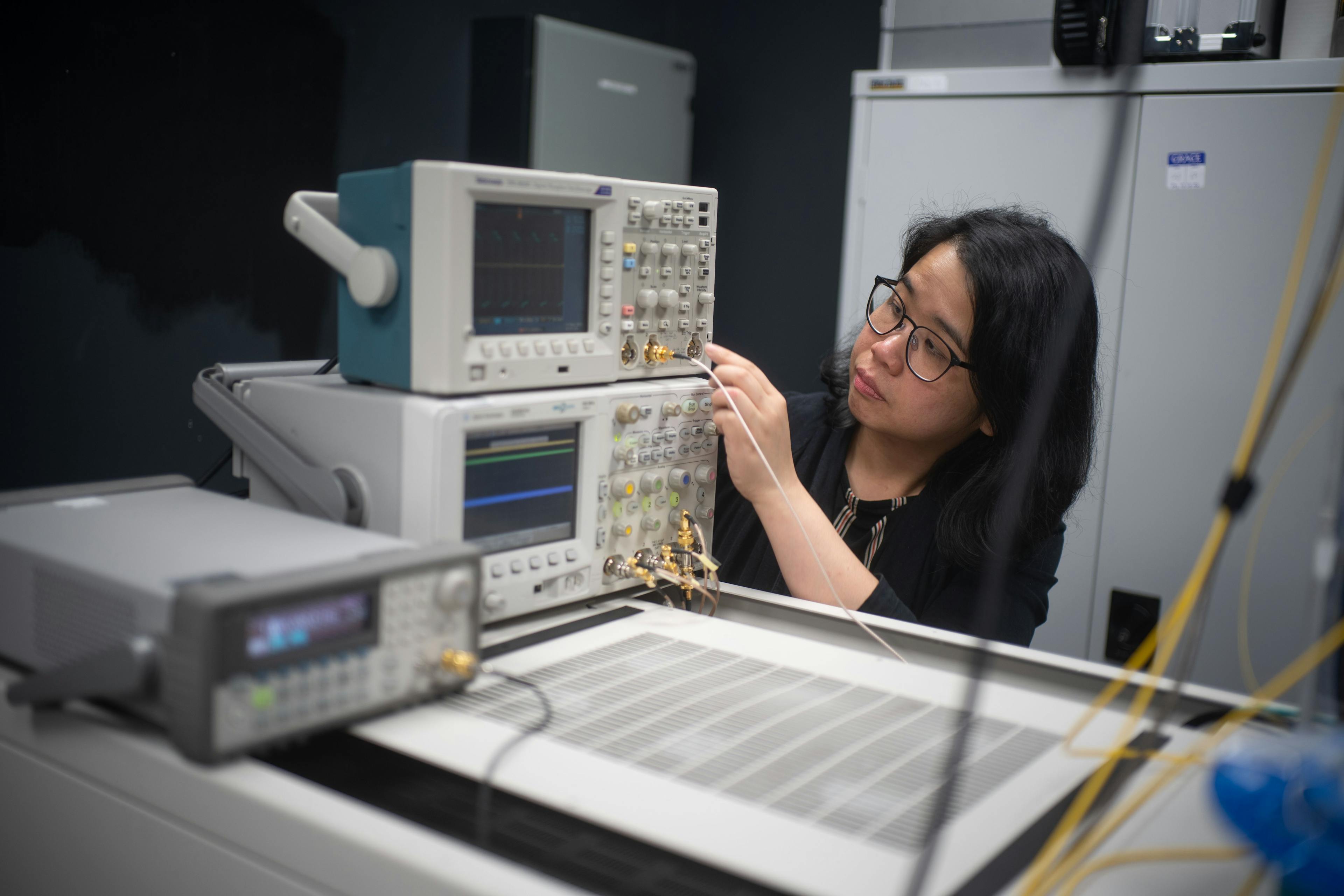
QLabs emerged from the award-winning research conducted by the ANU’s Quantum Optics Group and has received funding from Westpac Group, Chevron, TELUS, In-Q-Tel, and the Australian Department of Defence, and is today positioned at the forefront of the cybersecurity sector. The company offers a suite of solutions and services ranging from qStream, the world's fastest quantum random number generator to qOptica a continuously variable quantum key distribution system which is underpinned by the Trusted Security Foundation (TSF), the industry's most comprehensive encryption key management platform. The company is currently working with governments and organisations worldwide to secure the post-quantum computing future.
The company's capabilities have been recognised at several Australian and international events: global runner-up from a pool of 2,500+ companies in IBM's SmartCamp competition in 2013, named by the Australian Information Industry Association as Australia’s most innovative small company in 2014, and selected by the Security Innovation Network as a SINET16 Cyber Security Innovator in 2015. In 2016, Cybersecurity Ventures named QLabs in its Cybersecurity 500 list of the world’s most innovative cybersecurity companies. In 2017, the company was selected as one of Westpac’s 20 high potential Businesses of Tomorrow. It has also been named the first private-sector member of the Quantum Security Alliance (QSA) Strategic Information Sharing Partnership (SISP) program.
The QSA was established in December 2018 and has been working rapidly to provide context to the emerging security landscape for Quantum Computing (QC). Over the past several years of activity, the QSA has worked on numerous efforts, including aiding the Cloud Security Alliance (CSA), Quantum Tech Congress, and the National Defense University (NDU) in building a working knowledge-sharing model. QLabs is also one of the founding members of the Tech Council of Australia (TCA) Australian Quantum Alliance (AQA).
It has been widely recognised for its cybersecurity innovations around the world, recently through its selection as a World Economic Forum Global Innovator as well as winning a prestigious 2022 CyberTech100 Award.
In addition to its ties with ANU, QLabs also have several research partnerships with the University of Queensland, a linkage grant with the University of Newcastle, and a partnership with the University of New South Wales (UNSW) through its Centre for Quantum Computation and Communications Technology (CQC2T). The CQC2T currently houses a team of university researchers that is racing to build the world's first quantum computer in silicon.
The company’s globally recognised capabilities span enabling quantum resilient cryptography at enterprise-scale, quantum key generation, and quantum key distribution. It has helped enterprises build high performance, crypto-agile cybersecurity infrastructure on premises, in the cloud, and in hybrid IT environments.
India Strategy
QLabs solutions include full entropy quantum random number generators (QRNG) and crypto agile key and policy management systems. Unlike most QRNGs based on single photon detections with limited throughput, QLabs QRNG uses quantum tunnelling to provide truly random numbers at very high rates for larger-scale security and other applications. QLabs is also at the forefront of the development of quantum key distribution (QKD) technology, in which cryptographic keys are shared in quantum states. As measuring a quantum system disturbs it, attempts to intercept the key will introduce detectable anomalies. This makes it possible to detect the presence of a third party attempting to detect the key. QKD is currently more expensive than classical alternatives but could offer stronger communications security for sensitive data (e.g., financial, medical), communications (e.g., defence) and critical infrastructure and will be secure against quantum computing codebreaking algorithms.
Developing solid strategic partnerships, has been a key driver for QLabs India expansion intent. As an Indian-Australian CEO, Vikram understands the India market opportunity well and the reach of Indian Systems Integrators into global large enterprise customers. He has built technology companies in the past, including one of the first private ISPs in India. His India strategy is driven by his extensive experience of doing business in India.
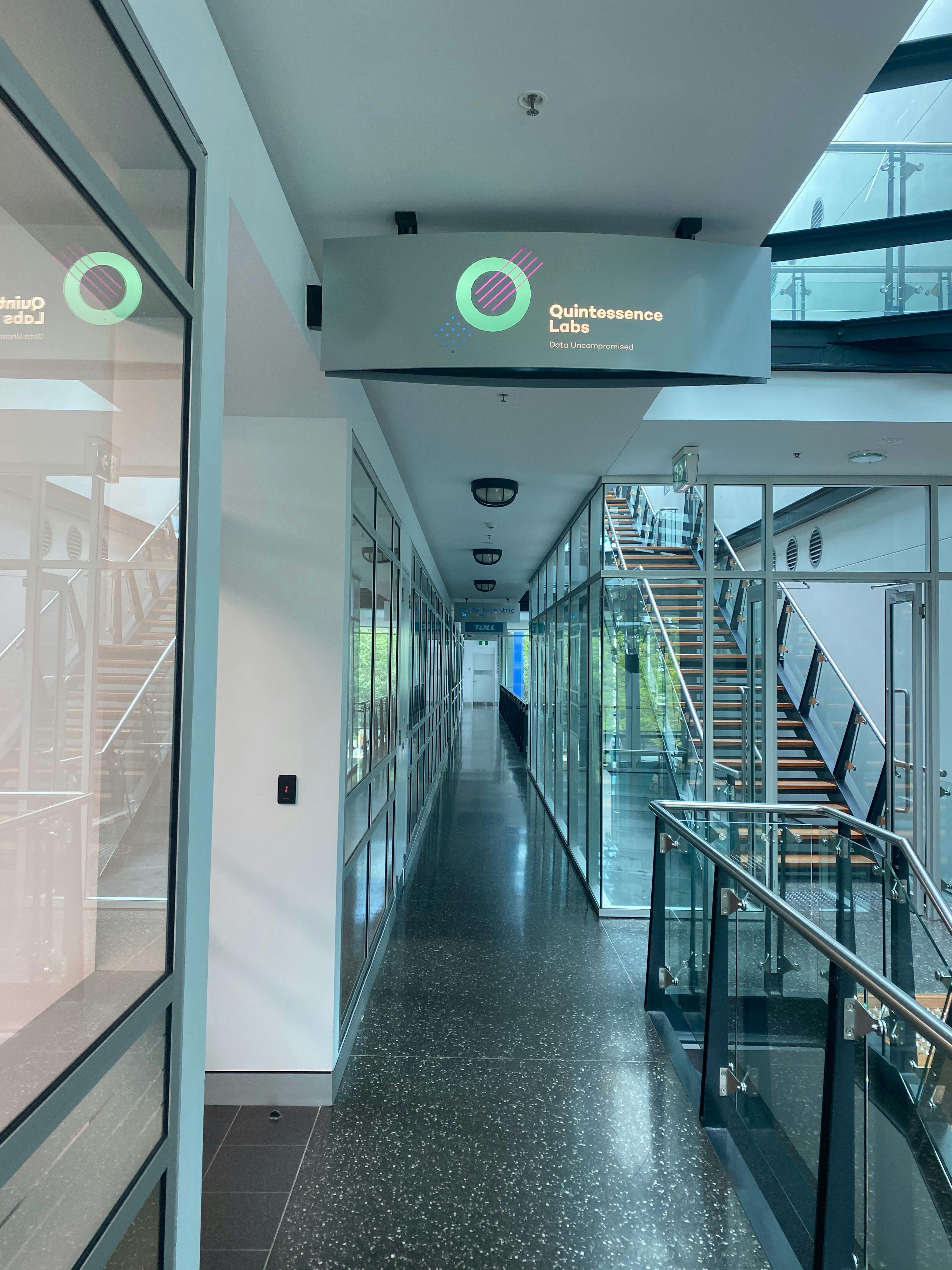
The company at this stage is implementing a partnership strategy and believes if quantum and cybersecurity are highlighted as important sectors for bilateral cooperation, it will provide an impetus to their in-market growth initiatives. The company strongly believes that the hyper-connected world needs mature security products. QLabs exports to over 18 countries including the United States, Spain, Canada, Germany, France, the UK, and Singapore.
“QLabs works across a range of industry security-driven sectors, and while the fundamental solutions remain the same across enterprises, how you interface into the existing systems is critical.” – Vikram Sharma, Founder and CEO, QuintessenceLabs
“Strategic partnerships are very valuable in helping us access markets in multiple geographies.”
“With an established presence in United States, QLabs has also developed partnerships in the UK, Singapore, India and Japan.”
Seeing The Future
The quantum sector is one of Australia’s most highpotential emerging sectors. According to research released by Tech Council of Australia, over 3 percent of global quantum startups originate in Australia. Australia is attracting 3.6 percent of all global venture capital investment in the quantum industry.
CSIRO’s Growing Australia’s Quantum Technology Industry report suggests that, if Australia can successfully commercialise technologies that capture 5 percent of the estimated global market for quantum-enhanced cybersecurity solutions and network technologies by 2040 it could generate $820 million in revenue and 3,300 new direct jobs.
The successful commercialisation and deployment of quantum-enhanced technologies for secure communications can also support national and industry security with sovereign capability in secure communication technologies and post-quantum cryptographic methods, also contribute to global productivity growth through reduced data loss or compromise through the implementation of secure communications networks.
Acknowledging Australia’s world-class and cutting edge capabilities in the advancement of quantum technology research and development, the CSIRO recent report estimates by 2045, Australia’s quantum technology opportunity could almost reach nearly $6 billion in total, and generate over 19,400 jobs by 2045, in three main domains: Computing, Sensing and measurement and Communications.

Planning Ahead
There have also been major Australian policy initiatives related to quantum technology. For instance, in November 2021 the Australian Government announced measures to invest $111 million in quantum technology, including $70 million for a Quantum Commercialisation Hub to form strategic international partnerships, commercialise Australia’s quantum research, and help Australian businesses access new markets and investors.
The key learnings from this case study are –
- Focus on building strategic partnerships across geographies, to effectively leverage your tech-potential, and your ability to be agile and responsive to customer expectations
- Do solid market research to arrive at a mutually beneficial partnership – that secures your commercial revenues and relationship, enabling a win-win partnership
- Carefully choose the team around you, choose people who have complementary skills to yours
- Be receptive to signals about what you are developing and/or producing from your partners, your own team and from the market. Being able to adjust and adapt to those signals is critical
- Be aware of market variations, how you sell, what you sell, how you message, and the expectations that your customers have. There are nuances that you need to adapt to in order to succeed
- You need to be in the market educating and talking to people, whether to a group of three or three hundred. It’s about being out there at every opportunity and spreading the message Remember that you are building your brand
- Look at your potential export markets critically
- Conviction, commitment, patience, perseverance and having a greater sense of purpose are significant driving factors.
“Cyber-security knows no boundaries. We can say that we were born global by default.”
